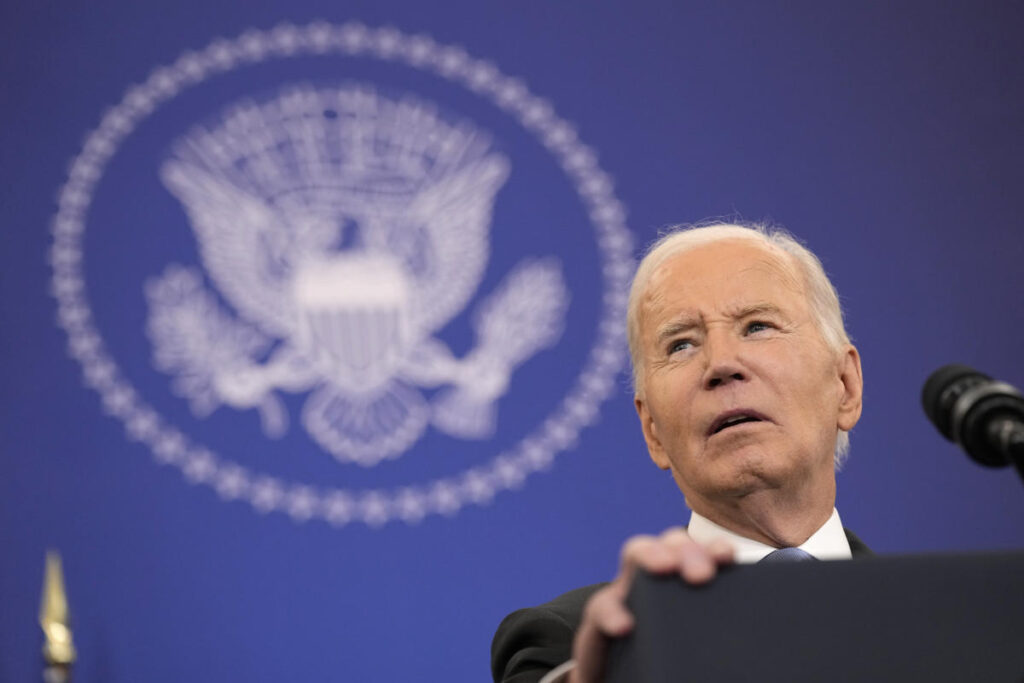President Joe Biden is removing Cuba from a U.S. government list of state sponsors of terrorism on Tuesday, according to administration officials.
That move, and a number of other conciliatory actions, are being taken in the hope of securing the release of political prisoners on the island, the officials told reporters in a briefing ahead of the announcement.
It could be a significant breakthrough in the bilateral relationship between the U.S. and Cuba, though President-elect Donald Trump may choose to reverse the decisions.
The officials said the White House also will suspend a provision of the Helms-Burton Act which has allowed Cuban exiles living in the United States to file claims against Havana in court and seek compensation for assets expropriated following the 1959 Cuban Revolution. The administration will also eliminate a list of restricted Cuban entities barred from certain financial transactions during the first Trump administration.
The Biden administration has long wanted to see Cuba release hundreds of political prisoners in Cuban custody following mass pro-democracy protests in July 2021. The Catholic Church is leading negotiations for their release and one of the administration officials said considerable progress has been toward a deal for freeing a “significant” number of the dissidents. The officials provided the briefing on the condition that they not be named.
Both Havana and Washington said in 2024 the other needed to do more before further rapprochement between both countries could occur. Cuba consistently and specifically pointed to the state sponsor of terrorism designation as a major obstacle to improving relations.
In a statement, Cuba’s foreign ministry said the announcement “rectifies, in a very limited way, some aspects of a cruel and unjust policy,” but insisted it would continue to condemn the United States’ “genocidal and illegal economic suffocation policy against Cuba.” Cuba also announced that it notified the Vatican it would release prisoners.
The Biden administration officials said that they were in contact with figures in the incoming Trump administration about the policy changes.
Since leaving office, Trump has said little about Cuba specifically, but Trump put Cuba on the state sponsor of terrorism list during his first term, and his administration restored sanctions and restrictions on travel to Cuba. Trump has also named critics of the Cuban government to key policy roles in his administration, including former Inter-American Development Bank chief Mauricio Claver-Carone to be special envoy for Latin America and Sen. Marco Rubio of Florida to be secretary of State.
Spokespeople for Trump and Rubio did not immediately respond to requests for comment.
The Biden administration officials argued that there no longer exists a compelling security reason to assess that Cuba is supporting terrorism. One of the main hang-ups was Cuba’s harboring of 10 commanders of a Colombian guerrilla group which is still at war with the Colombian government. The matter, per the officials, was resolved after Bogotá sent a diplomatic note to Washington in October urging Cuba’s removal from the list.
Since July 2021, when massive pro-democracy protests broke out on the island in response to persistent blackouts and an economic slowdown, hundreds of political prisoners have languished in Cuban prisons.
The ongoing economic crisis has also triggered an unprecedented wave of migration from the island; more than half a million Cubans have entered the United States in the last two years.
The announcement comes on the eve of Rubio’s confirmation hearing. Rubio is the son of Cuban immigrants who built his political base in heavily-Cuban Miami.
It also comes four years to the date when the outgoing Trump administration in 2021 added Cuba to the list of state sponsors of terrorism around the same time. At the time, the incoming Biden administration accused the Trump administration of “handcuffing” them when it came to Cuba policy.
Asked by reporters to acknowledge the irony that they are doing on Cuba policy exactly what they criticized the prior administration for doing, the officials emphasized the need to release political prisoners.
“There is broad bipartisan support from both parties and certainly both administrations, that people in Cuba should not be unjustly detained,” said one of the officials. “And so the intent is really to support what has been a long-standing priority of the United States government that has remained consistent over time, even as there have been changes in presidential administrations.”
But these moves are likely to upset many of the over one million Cuban exiles who live in the United States, as well as many prominent Cuban American lawmakers who support a tougher U.S. posture toward the authoritarian and communist government on the island.
Rep. Carlos Gimenez (R-Fla.), who fled Cuba as a child, wrote on X shortly after reports emerged about the policy move that the next administration “will not only put #Cuba BACK on the list but PULVERIZE the regime once & for all.”
A former Trump administration official, granted anonymity to speak freely about transition matters, questioned the decision to remove the designation. Colombia’s government may have changed its posture toward the guerrilla commanders in Cuba, but they are still being harbored there.
“Have those 10 people been extradited? Is there anything that has changed? The answer is obviously not,” the former official said. “In order to add or remove a country there needs to be a shift in behavior. If they haven’t been, then there’s no legitimate basis for this and I would suspect that Rubio and others will very quickly just reverse it.”
Robbie Gramer contributed to this report.
Read the full article here


